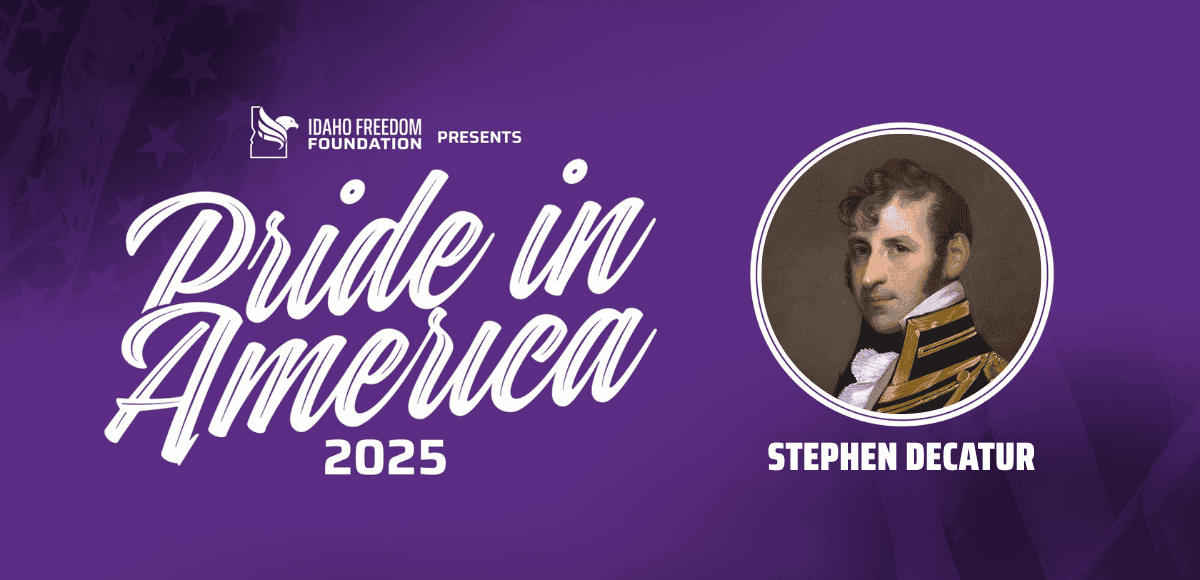


In celebration of our national heritage, we continue our Pride in America series by honoring Stephen Decatur.
Stephen Decatur (1779–1820) was one of the early heroes of the United States Navy — a bold and principled figure whose legacy has come to symbolize courage, patriotism, and unwavering dedication to American sovereignty. Rising to fame during the First and Second Barbary Wars and the War of 1812, Decatur distinguished himself not only for his naval victories but also for his moral clarity and fearless leadership at a time when America was still earning its place on the world stage.
Perhaps his most legendary feat came in 1804, when Decatur led a daring mission to burn the captured USS Philadelphia in Tripoli Harbor, preventing it from being used by enemy forces. British Admiral Horatio Nelson is said to have called it “the most bold and daring act of the age.” But Decatur’s legacy wasn’t built on bravado alone; it was grounded in a fierce belief in the dignity of national self-determination, a commitment to liberty over submission, and a deep sense of honor that transcended mere military duty.
To those in the modern freedom movement, Decatur’s life is a reminder that liberty must be defended, not just with words or policy, but with courage, sacrifice, and resolve. He believed in America’s right to stand free from tribute, tyranny, or foreign control — whether that meant battling pirates in North Africa or protecting commerce on the high seas. His famous toast — “Our country! In her intercourse with foreign nations may she always be in the right; but our country, right or wrong!” — has sparked centuries of debate, but at its heart lies an unshakable loyalty to the American experiment, even in the face of imperfection.
Stephen Decatur represents a brand of uncompromising bravery that resonates deeply with those who believe in individual liberty, strong national defense, and the principle that freedom is worth fighting for. He reminds us that freedom isn’t maintained by comfort or consensus, but by those willing to do the hard, principled thing — even when it’s dangerous, even when it’s lonely. In a time when courage can seem in short supply, Decatur’s legacy still stands as a call to rise, to defend, and to believe in something greater than ourselves.


